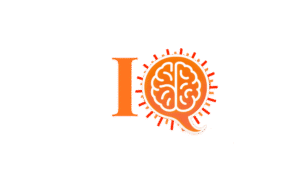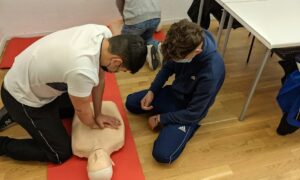Imagine a time before instant interaction and automated workflows. The traditional workplace was a world of paper trails, physical files, and countless meetings. Tasks were fulfilled through sheer legwork. Group effort often meant physically gathering colleagues in conference rooms, and data analysis was a laborious process of sifting through spreadsheets.
But the tides are turning. The rise of smart tools, from a handwriting recognition app to AI-powered assistants, is ushering in a new era of streamlined workflows and intelligent collaboration.
Unleashing Workplace Efficiency
The increasing popularity of smart tools has led to an efficiency revolution in the workplace. Imagine a world in which repetitive tasks are replaced by intelligent automation. Meeting scheduling, correspondence follow-up, and even gathering information can now be handled seamlessly by AI, freeing up valuable time for employees to focus on more strategic initiatives.
However, smart tools extend beyond automation. Consider the struggle with illegible notes. Handwriting recognition apps can now recognize even the most hurried scribbles, converting your notes into a searchable digital format. This saves time spent figuring out your handwriting while also allowing for easy access and sharing of information.
Furthermore, smart tools have dissolved the distinction between paper and digital. Consider precisely capturing handwritten notes or sketches and converting them into editable digital formats. This combines the flexibility of conventional practices with the benefits of digital organization and accessibility.
Unleashing Workplace Collaboration
Intelligent assistants are transforming the collaborative landscape. Communication, the foundation of teamwork, is being transformed by AI-powered tools. Imagine language barriers dissolving in real time with translation software, allowing international teams to collaborate seamlessly. These tools can not only translate spoken conversations but also documents and presentations, resulting in a truly globalized work environment.
Furthermore, smart tools promote inclusivity and accessibility among teams. Automatic transcriptions of meetings powered by AI eliminate the need for frantic note-taking and ensure that everyone has access to the discussion, regardless of note-taking style or skill. This levels the playing field, allowing everyone, including those with hearing impairments or who prefer a visual reference, to actively participate and contribute. Furthermore, these transcripts serve as valuable resources for future reference, allowing team members to review key points and action items at their own pace.
AI-powered teamwork tools promote inclusivity and break down interaction barriers, resulting in a more collaborative and effective work environment where diverse perspectives can be quickly shared and utilized.
Unleashing Long-Term Benefits
Smart tools are fundamentally changing the way we work together. These intelligent assistants are about more than just efficiency; they are ushering in a new era of increased productivity.
For starters, smart tools grease the wheels of cooperation, resulting in significant productivity gains. Automating repetitive tasks such as meeting scheduling and document revisions frees up time for teams to focus on strategic projects and brainstorm innovative ideas. Collaboration platforms that enable centrally managed communication and shared documents keep everyone on the same page, reducing confusion and wasted effort.
Second, smart tools allow for greater workplace flexibility. Real-time translation software eliminates language barriers, allowing teams to work seamlessly with international colleagues regardless of location.
Cloud-based platforms ensure that everyone has access to the most recent information, whether they are working remotely or in the office. This adaptability enables teams to tap into diverse talent pools and promotes a more inclusive workplace.
Finally, smart tools help create a happier and more satisfied workforce by improving workflows and enabling flexible work styles. Employees feel empowered when they have the necessary tools to work efficiently and effectively. Reduced stress and improved work-life balance result in higher morale and engagement.
This positive impact leads to a more dynamic and successful organization.
Conclusion
The proliferation of smart tools has sparked a transformative fire in the modern workplace. Automating repetitive tasks, breaking down communication barriers with intelligent translation, and fostering teamwork with real-time tools and shared knowledge.
The future of work is changing quickly, with smart tools leading the way. By strategically and ethically leveraging their power, we can create a work environment that is both productive and fulfilling, fostering a future in which human ingenuity thrives alongside intelligent assistants.
As we embrace these tools responsibly, the possibilities are truly exciting.



































